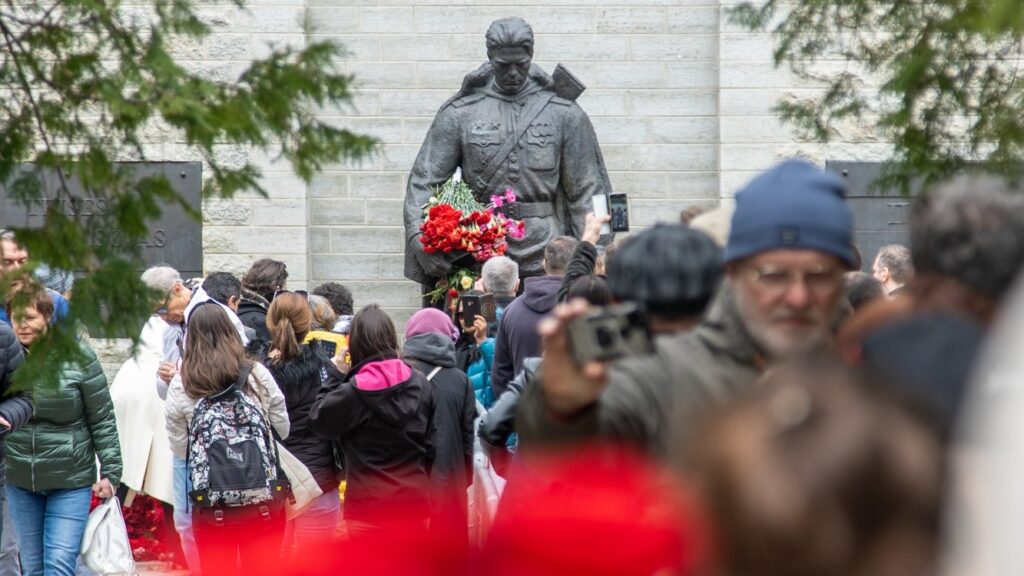Svetlana Stsur, an Estonian Russian, writes that she understands the sentiment around 9 May and its meaning for the identity of many Russian-speaking people around the world – but, quoting a short story from her 23-year-old Ukrainian friend, Russia’s bloody invasion of Ukraine has devaluated the meaning of the date.
Today, millions of people in Russia and former republics of the Soviet Union celebrate victory over Nazi Germany in the Second World War. Considering the ongoing Russian war in Ukraine, this holiday became extremely controversial, and its celebrations, which usually include public gatherings at the war cemeteries with flowers and the ribbons of Saint George, are now banned or restricted in several countries, including Estonia.
As a Russian Estonian myself, I understand the sentiment around 9 May and its meaning for the identity of many Russian-speaking people around the world. Most of us lost our family members in this war and to keep their memory alive is part of a grieving process, as well as our gratitude for their sacrifice in the name of peace. Unfortunately, this sacrifice was devaluated by the following occupation of the nation states in the Baltics and Eastern Europe by the Soviet Union.
Today, Russian authorities continue to manipulate the memory of the biggest tragedy and trauma for the Russian people. Putin shamelessly exploits the subject of fighting Nazism to justify the invasion of sovereign Ukraine and the killings of thousands of people on both sides. The lies the Putin regimes tell the Russian people, and the world are degrading the Russian nation and pushing the brightest people of Russia to leave their homeland.
Today, on the 77th anniversary of the victory over Nazism, I remember my family members who sacrificed their lives for their homeland and their children, including me. However, today I would also like to bring to your attention a short story from my friend, 23-year-old Marichka from Ukraine.
An existential fear
Marichka is a young teacher. The Russian war in Ukraine destroyed her dreams. The war turned her life upside down and made her feel existential fear and anxiety that no one deserves to experience in their lifetime. She could have fled her country dozens of times, but she decided to stay to help her people, including refugees from the eastern Ukraine.
She sent me a picture where she is posing on her balcony, on the 9th floor of the residential building in Ivano-Frankivsk, Ukraine.

She wrote:
It’s me in the photo. Behind is my balcony mini-garden and the view of my city. I live in Western Ukraine. Explosions do happen here from time to time but it is a relatively safe place to be right now.
During the first weeks of the war, each time there was an air raid, I ran to the basement to hide. One day, I stopped going there and found a safe place on the second floor in the corridor. During the attacks, I was deprived of sleep, and spending several hours in the corridor made me freeze. I was coughing all the time. I did not want to be touched or talk to anyone. But it’s important to find strength to communicate with people next to you under these circumstances.
I calculated the chance of a bomb hitting my building and decided to take a risk. I no longer go hiding. Since then, my life became easier. I am still anxious during an air raid alert because I know that I am not doing what I am supposed to do to protect myself.
On a brighter note, I planted some greenery on my balcony the other day. Now my mornings begin with a walkaround in my balcony garden. Psychologists say routine is especially important in times of instability like war. If there is a chance to make a plan and follow through with it, you should do it. That is the only thing that I can plan for now.
The opinions in this article are those of the author.

